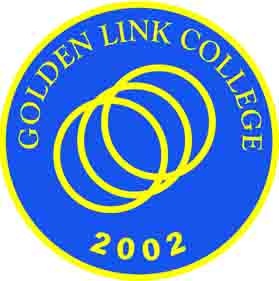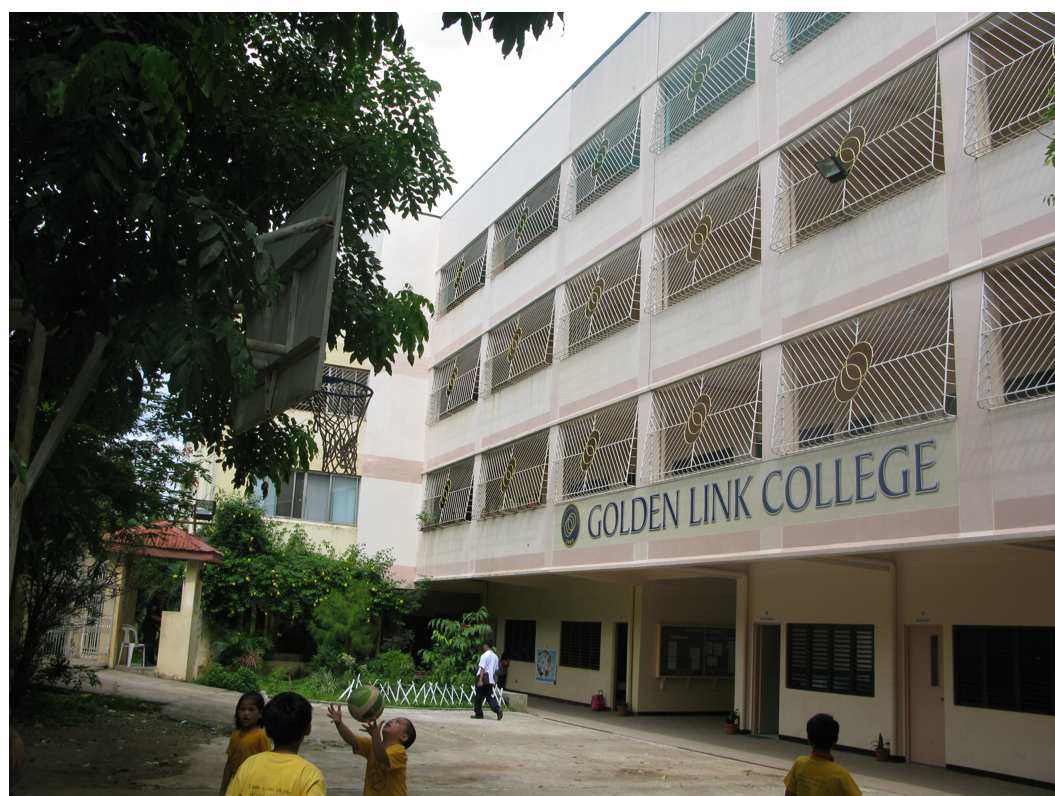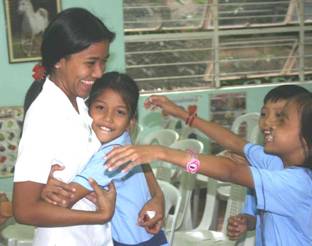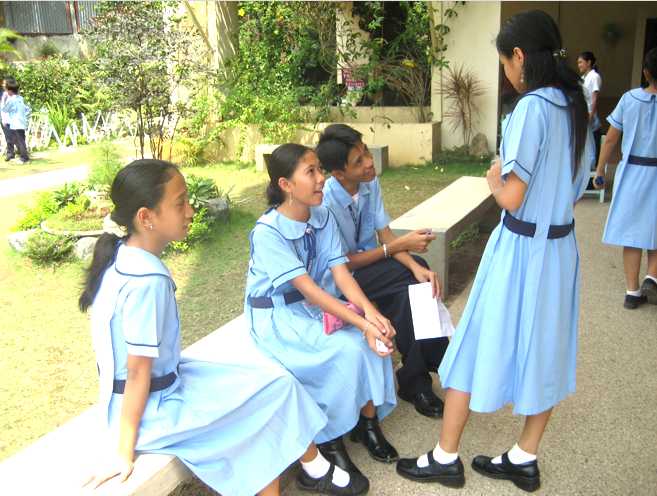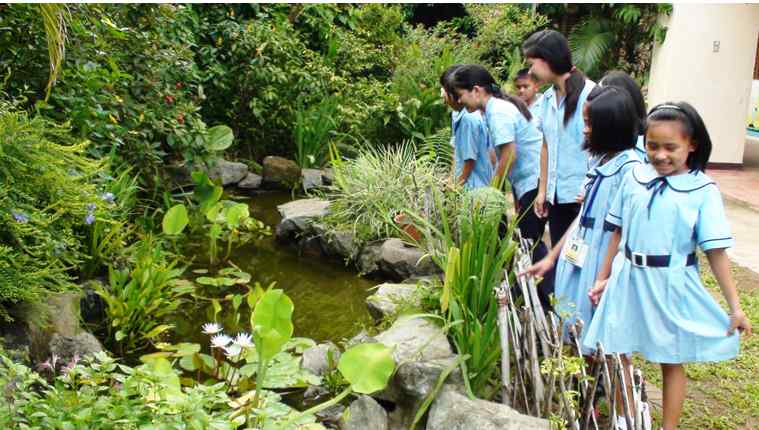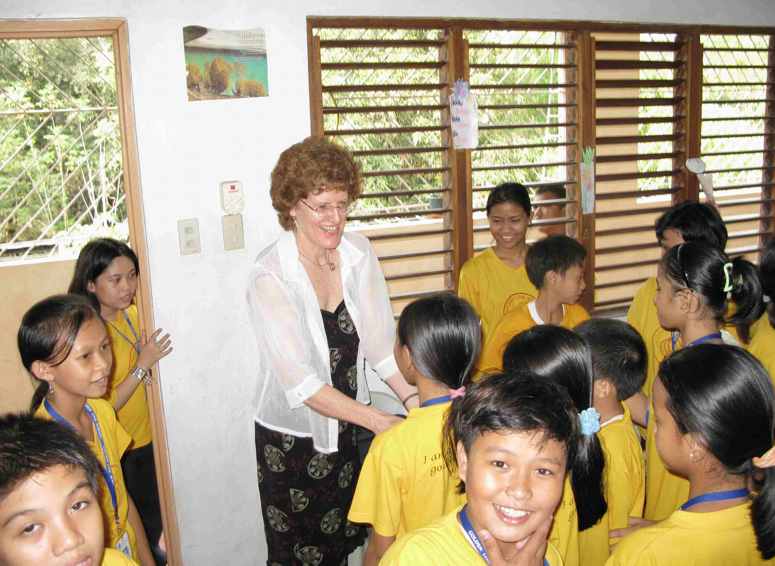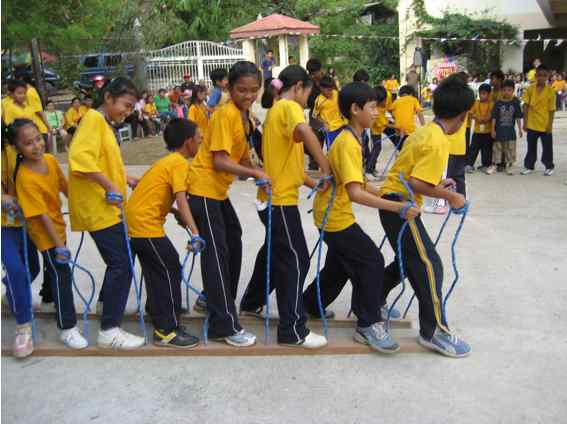Theosophical Education and the Golden Link College
Vicente Hao Chin Jr.
President, Golden Link College Foundation
Past President, Theosophical Society in the Philippines
A video talk given at the International Theosophical Conference, August, 2011, San Diego, U.S.A.
The objective of the Theosophical Society is to bring about a transformation of the individual and that of society. Such a transformation cannot come about by just changing external structures such as rules and laws. True transformation comes from the awakening of the higher faculties of a person and the mastery of the lower nature. From such transformed individuals will emerge a society that will be truly harmonious, loving and growth-giving.
Many of us who have been involved in giving courses or lectures through many decades would have noticed that adults and older people find it harder to undergo radical transformation. Intellectually they are convinced that they need to change something in themselves, and yet after five or ten years, they find that they remain generally the same in terms of behavior, like a doctor who is unable to give up smoking, or a teacher who finds it hard to be honest, and they give various sorts of justifications to explain why they couldn't change. The reason for this difficulty is not hard to fathom. The deeper one's conditioning is, the harder it is to change.
This is the reason why it is important for the TS to become involved in theosophical education of the young, which is to lay the right foundations in the development of their personality, mind and character, such that the conditionings will not go contrary to wholesome growth directions when the individual is ready for loftier levels of development. In such a way, benign influences can more easily be integrated by the individual.
A second reason for establishing educational institutions is because theosophical organizations must involve themselves in the mainstream of society, becoming a growing factor in the changing of world thought and culture for the better. Unless we pioneer the application of the theosophical philosophy in individual and social transformation, theosophy will remain a theory to most people.
In the 1990s, the Theosophical Society in the Philippines launched the Self-Transformation Seminar, which is an attempt to bridge the gap between theosophical principles and daily life. It became very well received not only within the TS, but the general public such that we get invitations from schools, church organizations, businesses, non-government organizations as well as government entities to conduct it for them. Eventually, theosophical organizations in various parts of the world also requested for the seminar, including the training of facilitators so that they could conduct it by themselves.
From the success of the seminar, we developed a modified version of it in the form of a 4-day youth camp for young people from 13-25 years old. After several years of conducting it to the public, we noted dramatic changes in the way of life of young people after they had attended the camp, which we called Golden Link Youth Camp. A community in Quezon City has weekly basketball games among the young people. After every game, there would usually be a fist fight because the losers felt that they were cheated in the game, or that the winning team used rough methods. One day several young people from this community joined the Golden Link Youth Camp, and they discovered during the camp that there were much more important things in life than winning a basketball game. They learned how to be caring, magnanimous, assertive, self-disciplined. After they returned, the community noted that where the basketball games were participated in by those who joined the youth camp, there were no fist fights after the game. The losers cheerfully congratulated the winners.
There are many individual and group stories after the youth camp that involved the development of truthfulness, effectiveness in relationships, healing broken families, resolving suicidal tendencies, etc. It dawned on us that if the theosophical approach to self-transformation can bring about such fundamental changes in the life of young people in just four days, what more if they are with us for a whole school year.
This gave birth to Golden Link School, which today has become Golden Link College. Using an integrated approach to growth, we developed a campus that does not just focus on academic excellence but also one that will best nurture the entire personality and character of young people.
Methods
The methods or approaches to education are in many ways more important than the content. For example,
- Fear should not be used as a method of controlling or motivating the student. Fear and threats are usually employed by adults to manage the behavior of children. In the short run, they look effective, but in the long run the harm far outweighs the convenience. The personality of the child shrinks and becomes guarded and defensive, rather than open and creative. One tends to conform to the surroundings rather than to be true to oneself. Thus in Golden Link, teachers are trained how to teach, motivate and manage a class without the use of fear or intimidation or punishment. The learning atmosphere should be one of love and care. These are the factors that make a child bloom, like sunshine and water to plants. This is not easy because teachers who have been trained in standard schools have learned how to use intimidation to control children. It takes months and years to really train such teachers because we have to undo many of their own conditioned behaviors, attitudes and ways of thinking. Sometimes we have new teachers who would cry in the first two weeks of teaching out of frustration because they were told not to use shouting and intimidation to handle their classes, and yet they have not developed the skills yet to be effective without the use of fear.
- Golden Link does not use competition and contests to motivate students. These kinds of motivations have harmfulness in a number of ways: competition stresses the winning rather than the learning; it creates hostility and division among students; it prevents cooperation and mutual helpfulness; it creates fear of losing and "failure." Thus when we have a speech or declamation program where parents are invited to attend, the ones who go to the stage are not just those who are best in speaking. Every single student goes up to the stage and speak, from the youngest 3-year-old nursery student to the oldest 4th year college student. There are no champions or gold medalists. The fact that they are able to stand in front of hundreds of people to deliver a poem, a story or a speech is enough reward. Many students change their self-image and self-esteem as a result of these non-competitive activities.
- There is no ranking among students. Hence we do not give out medals or honors. During graduation ceremonies, the valedictory address is given by every one of the graduates, not just by the top student.
- The atmosphere in the campus is designed to be one of appreciation, acceptance, love and care. In a typical day, when teachers are just standing in the corridor chatting, a child may pass by and then put her arms around the teacher's waist, not saying anything, and after a while go on walking to where she was going. Each time I enter the school, students would come to me to shake my hands and say good morning. The teachers, the registrar, the cleaners, all of them shake my hands when they see me. This simple practice has a powerful impact on the self-esteem and social maturity of young people. They feel respected and acknowledged every day.
Contents
The contents of theosophical education must depend upon the age of the student, and also the culture of the country and family. For example for preschool and primary levels, the contents will mainly focus on the formation of wholesome habits, personality and character development, care for living things, right relationships, handling anger, fear and other unpleasant emotions, teaching of basic concepts such as karma, etc.
In secondary level, we introduce the applied side of theosophical knowledge: levels of consciousness, higher and lower selves, awareness and mastery of emotions, effective relationships, love and caring, integration of higher values, awareness of present karma, etc.
On the collegiate level, we formally introduce theosophical concepts through various courses which are required for all students, whatever degree they are pursuing. These are
- Theosophy and the Perennial Philosophy
- Comparative Religion
- Self-Transformation Course
- Theosophical Education and Alternative Educational Approaches (for education majors)
- Transpersonal Psychology (for psychology majors)
- Parapsychology (for psychology majors)
In addition, the school conducts a four-day camp each year that is meant to build the character of our students and further introduce them to the principles of the ageless wisdom. Every student must also enroll in a course on “Marriage and Parenting.”
In general, the educational approach of Golden Link College gives attention to five areas:
- Health
- Emotional maturity
- Intelligence
- Competence
- Character
When one of these is lacking, then a human being is not very well prepared to face life. Theosophical education aims to nurture students in all these facets. They are the foundations of future spirituality.
In addition to these there are six school programs or presentations where all the parents are invited. During these programs, there is always a talk on parenting and family life, on true growth versus external success, on relationships, happiness and similar topics. Through the years, we have heard of the changes of the parenting techniques of parents as a result of these regular exposures to parenting methods as well as a wider philosophy of life.
This year is the tenth year since the opening of Golden Link College and we have made several observations about the impact of this educational approach.
- First there is a much higher degree of psychological balance and maturity among students compared to standard schools. I say this not out of a systematic study but out of years of observation. For example, we hardly have violent conflicts or fist fights among students. Students, whether at home or in school, have learned more effective conflict resolution approaches. We hear of so many feedbacks from parents about how their children have changed after they enrolled in Golden Link. Many of them have been instrumental in the transformation of their family members by their very example.
- The students in general have a much more wholesome degree of self-esteem, self-acceptance and self-confidence. In Asia where young people tend to be more timid, our students are more expressive and demonstrative whether in speaking or in relationships. They are no longer intimidated by so-called failure or not being the top student. We have heard a lot of stories from our own graduates about how they fare when they move on to other universities or schools.
- The students are happier. They like coming to school because it is a more loving and cheerful place. When classes are called off for several days due to typhoons or storms, we get calls from students asking when they can come to school. Students are not afraid of teachers or administrators. Students for example regularly go to the office of the Administrator and read books or play games there. They even sleep there on the floor! Students feel uninhibited to tell their teachers "I love you, Teacher!"
- They are able to better integrate moral values into their daily life. There is a greater degree of honesty and sincerity. When trouble happens in a classroom and the teacher asks what happened, they are surprisingly ready to admit if they are responsible, and to apologize to whoever they have offended, whether a fellow classmate or teacher.
- Despite the fact that Golden Link does not use fear or punishment, students are responsible in their behavior. Golden Link has developed a reputation in the community that it is an effective molder of character of young people. This school year alone, I interviewed several parents who were enrolling their sons who had serious problems at home and in school. When I asked them why they are transferring their children to Golden Link they said that they heard that young people change when they enroll in Golden Link.
- More than 60 percent of the students come from very poor families and we have extended to them either full or partial scholarship. Many of them come from public schools whose academic standards are extremely low and we feel that one of the most important roles of Golden Link is to make available high standard education at very modest costs.
The Golden Link educational philosophy and method is continually evolving. The stories that we hear from the students and parents themselves are our sources of inspiration that tell us that somehow we are doing something right. It is a high mission but very difficult to achieve. But it is one of the most worthwhile things that the Theosophical Society can be involved in because it is about the permanent molding of human lives.
